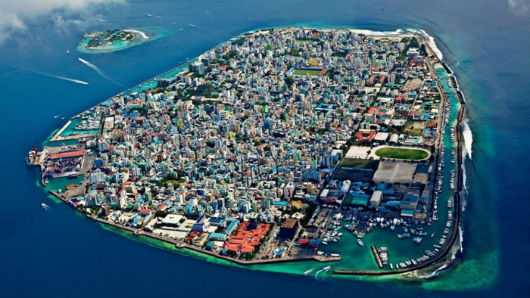A bomb in the heart of Malé
Amidst an escalating struggle for influence at the country’s top leadership, the residents of Malé reacted to the news of Monday’s bomb with skepticism, signaling an unprecedented loss of confidence in the security forces and the government.

03 Nov 2015, 09:00
On November 3, 1988, the residents of Malé awoke to the sound of gunfire. Tamil mercenaries carrying Kalashnikov assault rifles and hand grenades charged through town, killing some 19 Maldivians, before Indian commandos crushed the coup attempt. Twenty-seven years later, on the eve of Victory Day, confusion swept through the streets of Malé once again, when the home ministry announced the discovery of a powerful bomb in the heart of the capital.
But amidst an escalating struggle for influence at the country’s top leadership over an alleged attempt to assassinate President Abdulla Yameen, the residents of Malé reacted to the news with disbelief and skepticism, signaling an unprecedented loss of confidence in the security forces and the government.
According to the Maldives National Defence Forces (MNDF), the homemade bomb, made out of dynamite, was found at 5pm on Monday, wrapped up in a t-shirt and left in a white lorry parked near the presidential palace, Muleeaage.
Police officers evacuated residents of the buildings near Muleeaage, telling them their lives were in danger. Rumors of a bomb threat began to spread through Malé. But the police spokesman refused to comment, only saying parts of the city would be closed for a routine joint police and military operation.
Become a member
Get full access to our archive and personalise your experience.
Already a member?
Discussion
No comments yet. Be the first to share your thoughts!
No comments yet. Be the first to join the conversation!
Join the Conversation
Sign in to share your thoughts under an alias and take part in the discussion. Independent journalism thrives on open, respectful debate — your voice matters.




